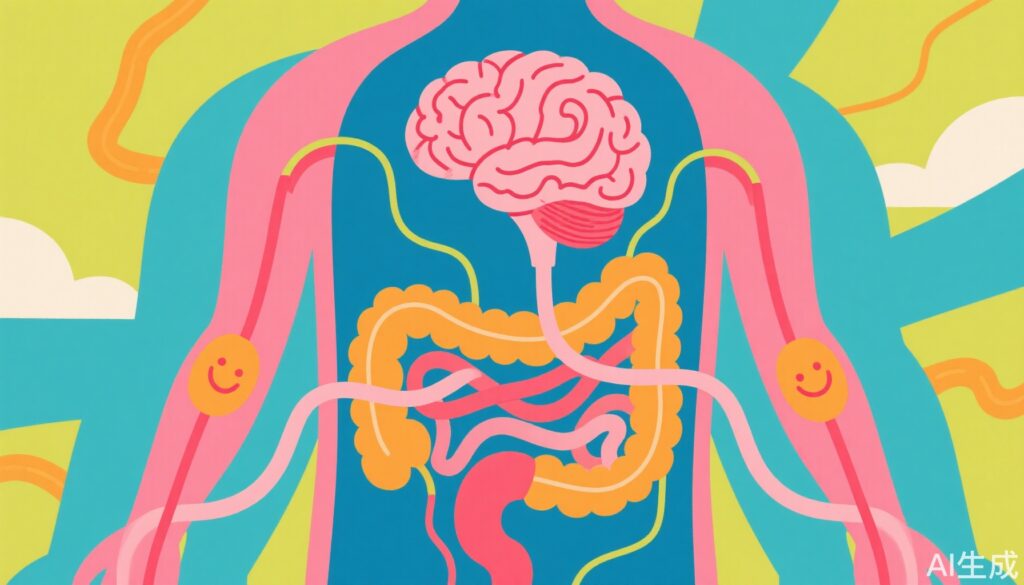Introduction: The Gut-Brain Connection
We often hear about the brain’s role in controlling mood and emotions, but emerging research highlights a surprising player: the gut. Nicknamed the ‘second brain,’ the gut houses a complex network of neurons and microbes that communicate directly with the brain. This gut-brain axis plays a vital role in mental health, influencing mood, anxiety, and even depression.
Understanding the ‘Second Brain’
The gut contains an extensive nervous system known as the enteric nervous system (ENS), comprising approximately 100 million neurons. This system regulates digestion independently but also sends signals to the central nervous system through the vagus nerve and biochemical pathways. Alongside the ENS, trillions of gut microbes — collectively called the microbiome — produce neurotransmitters like serotonin and dopamine, crucial chemicals linked to mood regulation.
How the Gut Influences Mood
Neurotransmitters produced in the gut can affect brain function and emotional states. For example, about 90% of the body’s serotonin, often called the ‘feel-good’ neurotransmitter, is produced in the digestive tract. Disruptions in gut microbiota balance, caused by poor diet, stress, or illness, can alter these chemical signals, potentially contributing to mood disorders such as depression and anxiety.
The Science Behind the Gut-Mood Link
Scientific studies have demonstrated that individuals with gut dysbiosis—a microbial imbalance—often experience increased symptoms of depression and anxiety. Animal models show that transferring gut microbes from depressed individuals to healthy animals can induce depressive-like behaviors, underscoring the microbiome’s influence on mood. Moreover, probiotics, which introduce beneficial bacteria, have shown promise in improving mood and reducing stress in clinical trials.
Practical Ways to Support Your Gut and Boost Mood
1. Maintain a Balanced Diet: Emphasize fiber-rich foods such as fruits, vegetables, whole grains, and fermented foods like yogurt and kimchi to nourish beneficial gut bacteria.
2. Manage Stress: Chronic stress negatively impacts gut health. Practices like mindfulness meditation, yoga, and regular physical activity support both gut and mental well-being.
3. Consider Probiotics and Prebiotics: Supplements or foods containing probiotics and prebiotics can help restore healthy microbiota.
4. Avoid Excessive Antibiotic Use: Antibiotics can disrupt gut microbes; use them only when necessary and under medical guidance.
5. Stay Hydrated and Sleep Well: Proper hydration and quality sleep are essential for gut and brain health.
When to Seek Professional Help
While lifestyle changes can significantly improve gut and mood health, persistent or severe symptoms of depression or anxiety warrant professional evaluation. Psychiatrists and gastroenterologists may collaborate to address the gut-brain axis in treatment plans, including dietary interventions, psychobiotics (microbes that impact mental health), and traditional therapies like counseling and medication.
Conclusion: Embracing the Gut-Mood Connection
The intricate dialogue between the gut and brain underscores the importance of holistic approaches to mental health. By nurturing your gut through mindful nutrition and lifestyle choices, you empower not just your digestive health, but your emotional resilience as well. Understanding and caring for your ‘second brain’ can be a powerful tool in beating the blues and fostering lasting well-being.


